Condensed Matter in Plain English
Condensed matter is the study of phases (like solid, liquid, and gas) and phase transitions. Why do we call it condensed matter? We mean condensed in the sense of condensation, as when water vapor condenses to liquid and forms those cold drops of water on the outside of a glass of iced tea.
Our group focuses on what electrons do inside of solids. Just as liquid, solid, and gas are different phases of matter, it turns out that electrons inside of materials have their own phases. For example, metals conduct electricity. That means that in a metal, the electrons can flow. Things that flow are liquids, and so we call it a liquid-like phase of electrons. In many materials, the electrons don't move so freely. When each electron is stuck to a particular atom, the electrons are in a solid-like phase, which is insulating rather than metallic.
There are many other phases of electrons. Your refrigerator magnets are in an electronic phase called a ferromagnet. Inside the magnet, electrons are executing tiny current loops at the atomic scale, generating their own little nanoscale electromagnets. When the electrons are in a ferromagnetic phase, all the microscopic current loops are aligned. These all add up to form one big magnet that you can use to pin notes on your refrigerator. (Or, if you get a really big magnet, levitate frogs...)
Much of the work in this group focuses on superconductivity, which is yet another phase of electrons. Here, electrons use the buddy system to form pairs, which together act as completely different particles called bosons. Through a trick of quantum mechanics, the pairs are able to sneak through materials without losing energy through collisions with the atoms in the material or collisions with each other. That means they can conduct electricity without ever losing energy, and we call this perfectly conducting electronic phase a superconductor.


